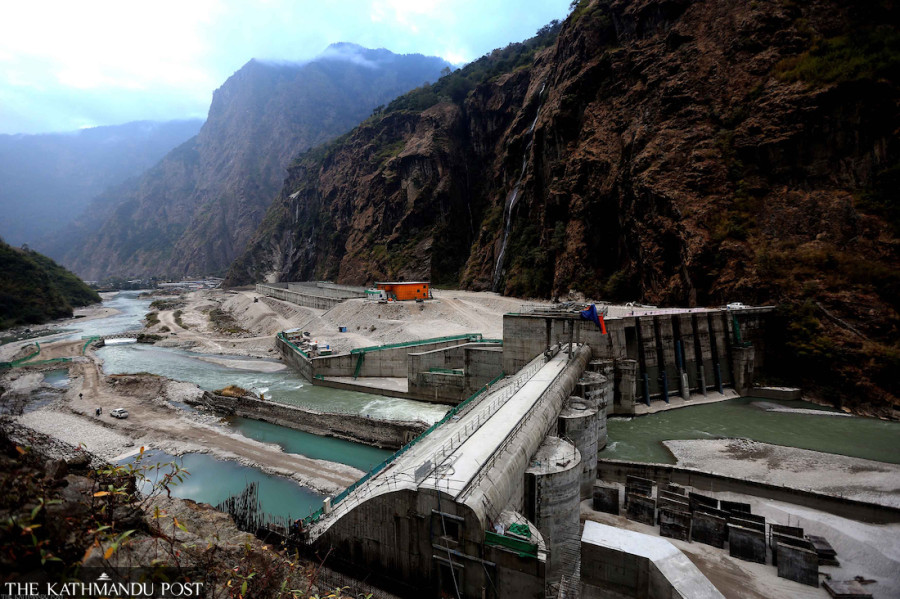Editorial
Environmental blemish
There will be consequences for prioritising profit over the environment.
Construction work is often striking a balance between development work and environmental protection. Hence, such work needs to proceed with extra caution since it requires a considerable investment of time and money. And any obstruction to the project after initiation only adds to a myriad of problems typical of a construction project. Gaurishankar Conservation Area in the country's eastern Himalayan region has issued a directive asking the Rolwaling Khola Hydroelectric Project and the Lapche Khola Hydropower Project to stop any construction immediately.
The hydropower projects have been accused of flouting norms and environmental standards. It is pretty characteristic of power projects to muscle their way into achieving what they want by breaching agreed norms like Lapche Khola Hydropower, which has been accused of felling trees and constructing a road without obtaining a permit. Sure, the issue at hand concerns the provision of power much needed for the nation's development, but why cannot the project officials work in tandem with the conservation area? The blame for constructing the road has been shifted to rural municipalities, but the damage has already been done.
The hills and mountainous regions in Nepal are prone to landslides, especially during the monsoon season; and projects such as these often need to level the area by moving a lot of earth, and this process leads to widespread destruction of the surrounding vegetation and wildlife. One may have thought that the environmental impact assessment (EIA) would incorporate all the thorny issues revolving around the project. But it seems that Lapche Khola Hydropower has not bothered to submit documents related to the EIA.
Such irresponsible acts do nothing more than become a hindrance to the smooth functioning of projects. Constant delays only cause cost overruns at the existing projects. Hence, abiding by the agreed standards often works in favour of the concerned projects. But there will be consequences for prioritising profits over the environment. When environmental issues have hogged the limelight and have taken centre stage on global platforms, companies and projects should avoid the blemish of being reckless with the environment. The effects of non-adherence are made clear by nature itself, wreaking havoc during the monsoon rather than a slap on the wrist often accorded by the authorities for breaching the agreed standards.
Nepal does not have sound credentials concerning adherence to environmental standards. Whether it is about excavating river beds for their sand or pebbles or the complete decimation of hills to extract minerals, there have always been reports of non-adherence partly because those involved in the trade know very well that the authorities can be manoeuvred as per their will. And as long as this continues, issues will be raised and quietly forgotten.




 20.12°C Kathmandu
20.12°C Kathmandu













